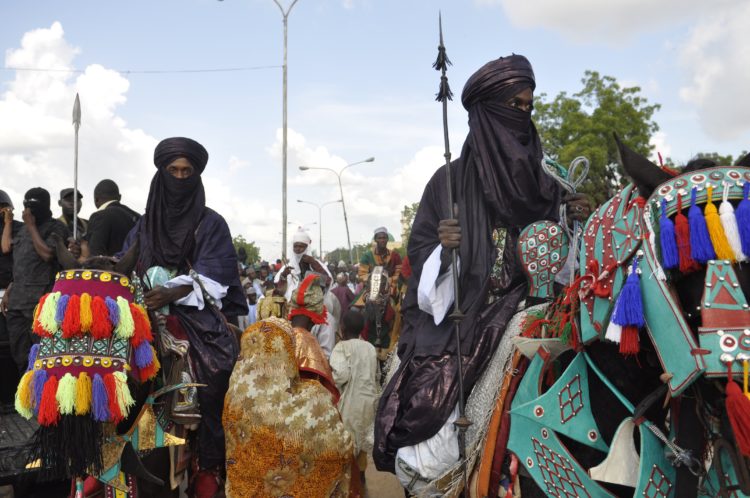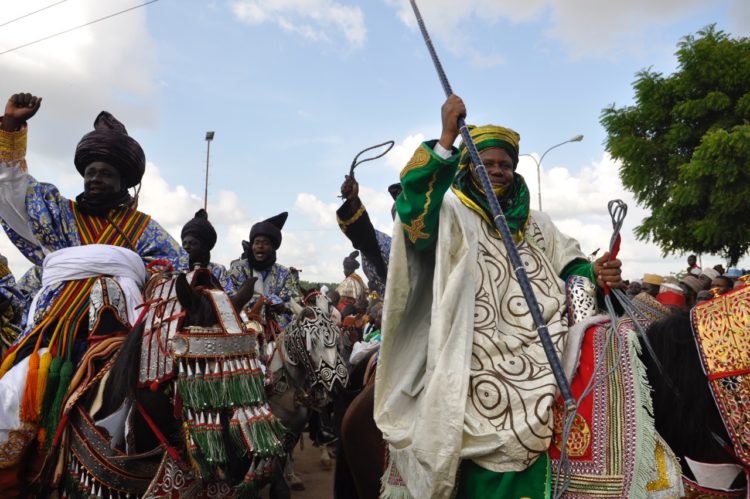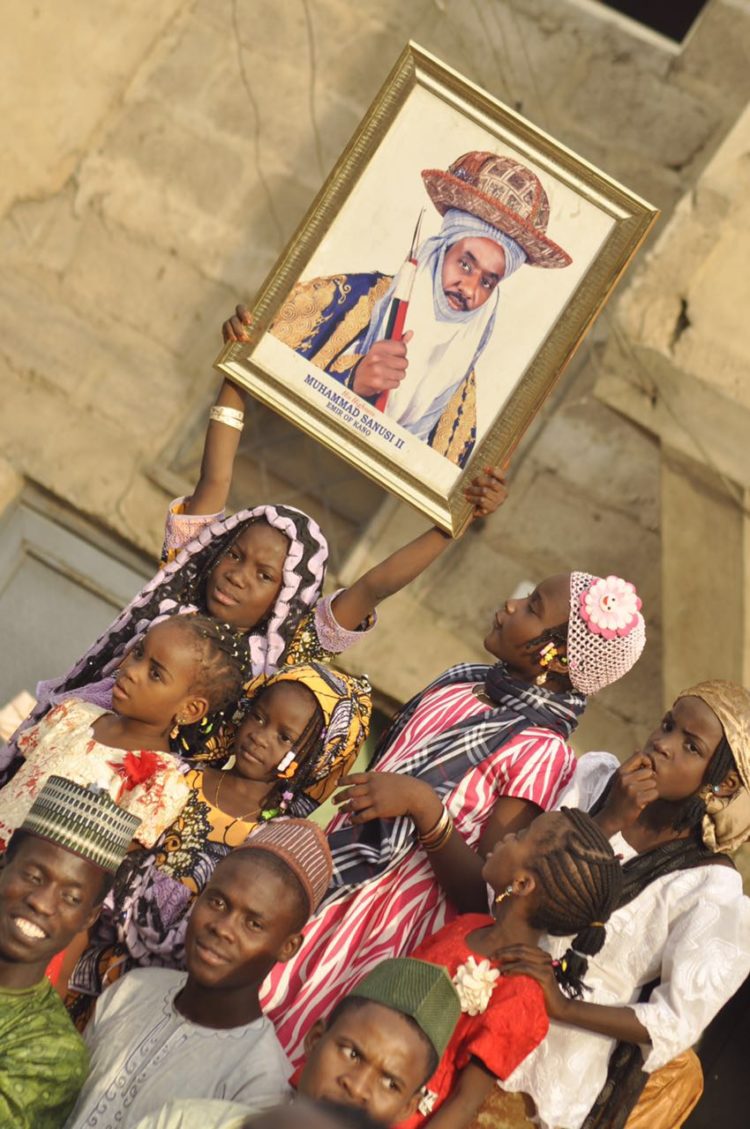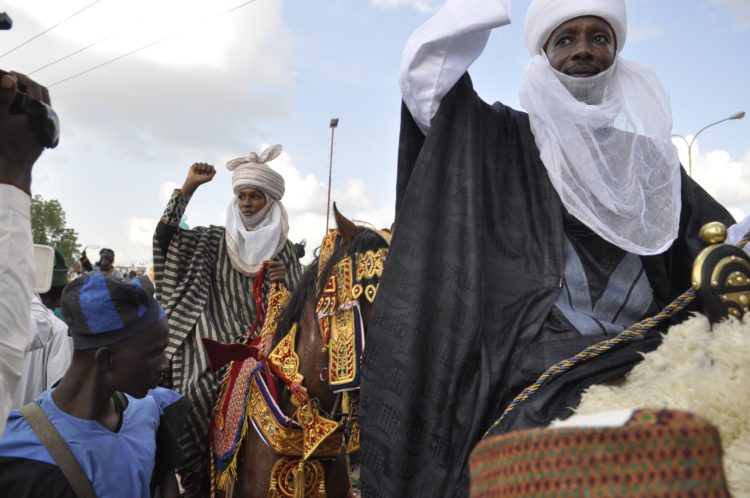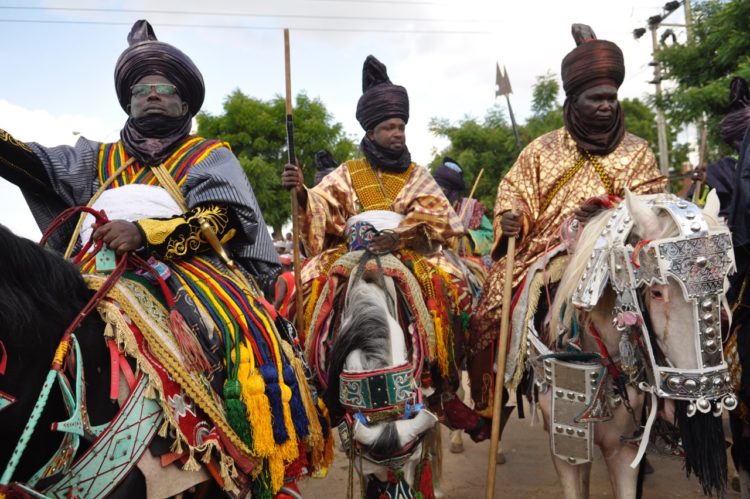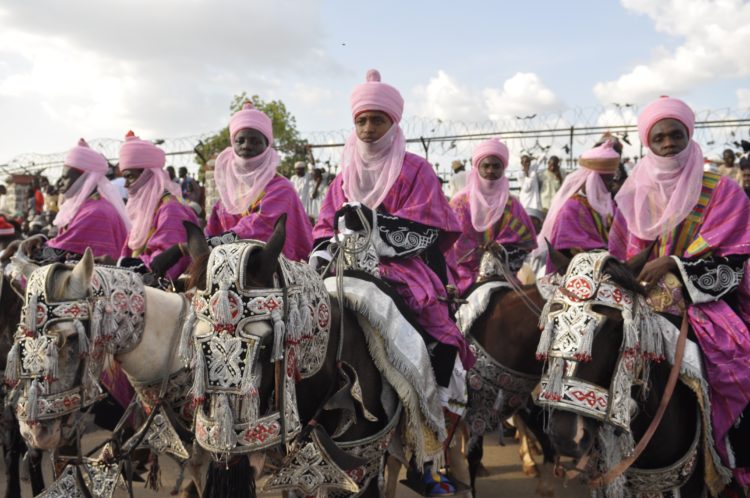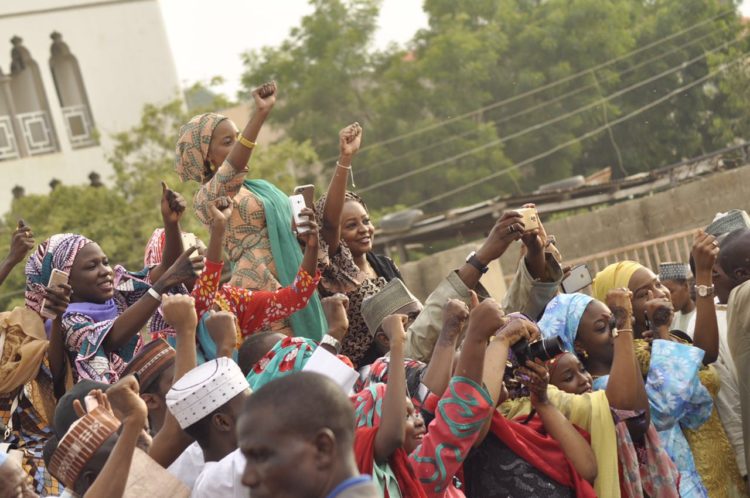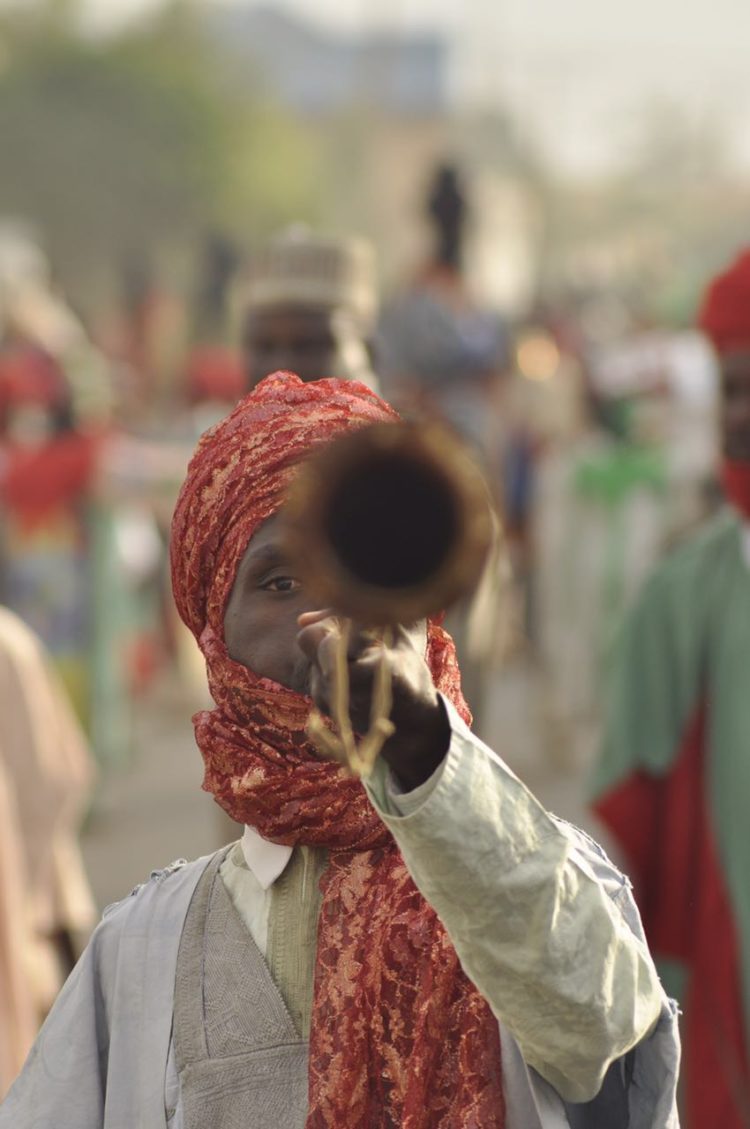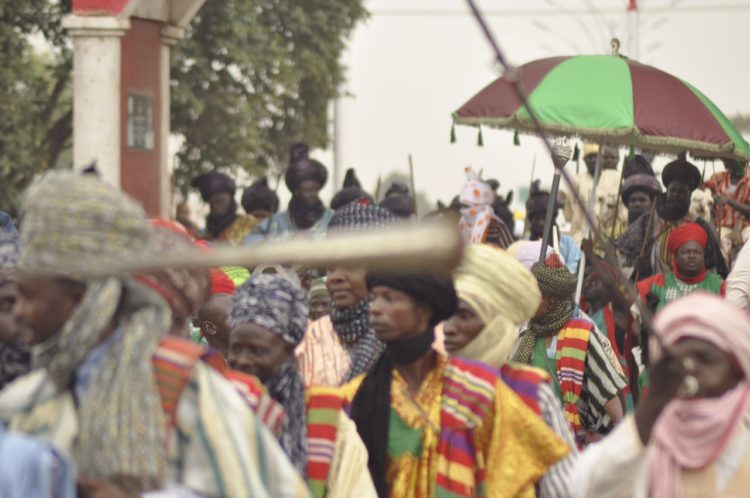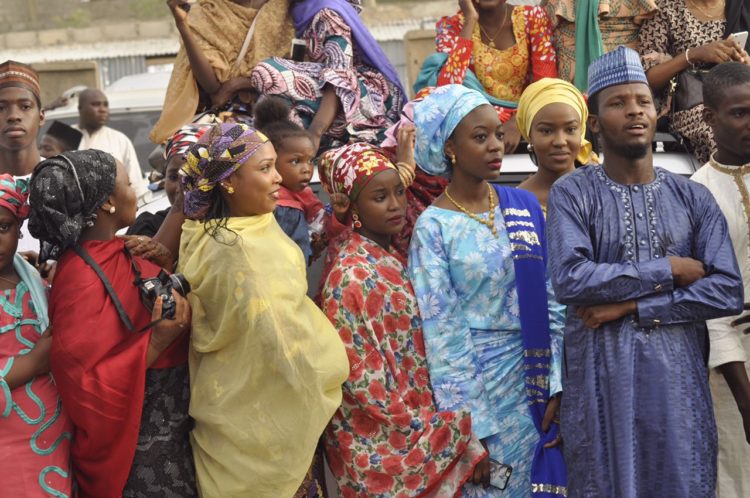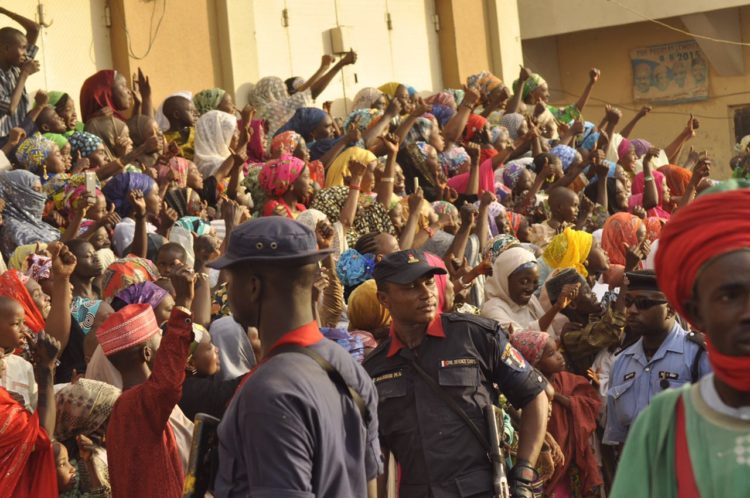For over two 200 years, Nigeria’s northwestern state of Kano has led the way in West Africa when it comes to the annual Eid celebrations. Its Durbar celebrations – the Hawa Daushe and Hawa Nasarawa – attract over a million people. But what do young people think about the ancient tradition? And are they keen to keep it going?
The horse ride (‘Hawa’ as it is popularly called in Hausa) consists of the ‘Daushe’ (festivities on day one) and ‘Nasarawa’ (on day two).
The celebrations are a combination of royal parades with thousands of men and young adults on horses adorned with garments and regalia all paying homage to the city’s Emir, Sanusi, Nigeria’s former Central Bank governor.
The processions are separated into camps: each palace chief comes with his own group to hail the king with the phrase ‘Ran Sarki ya dade’ (meaning ‘Live long the King’).
The festivities date back to a time when the Kano Emirate used horses in warfare. During this period, each town, district, and nobility household was expected to contribute a regiment to the defense of the Emirate. Once or twice a year, the Emirate military chiefs invited the various regiments for a Durbar (military parade) for the Emir and his chiefs.
Today, there are no more communal wars but the tradition still goes on. The next generation are expected to keep it up when their elders are no more.
16-year-old Sanusi Maiyaki (in the middle in the photo above) belongs to the Sarkin Dawaki Maituta (a palace chief) camp for the Durbar parade and he says it’s his favourite part of the year. He not only loves riding but also he’s a big fan of royalty and the elegance that goes with it.
‘I was an onlooker before the age of ten but after that I became actively involved because my uncle who is a chief in the palace needed as many people as possible in order to make more impact and get more salutations from the king and the crowd.’
Each of the palace chiefs try to outdo one with horses and riders. The larger and more colourful entourages get more nods from the Emir and cheers from onlookers.
Jamilu Mukhtar, 25, (on the left with his brother Umar Mukhtar in front) says he can’t imagine Kano without the yearly Eid Durbars. ‘The truth is Kano without this Durbar will be a bit boring to be honest.’ I ask him if he thinks the ancient tradition will continue. He’s certain it will. ‘You can see the large number of spectators especially young people which answers your question regarding the continuation of this colourful tradition. The Hawa is surely in safe hands with the youth.’
Many travel from afar, from the rest of Nigeria but also Niger and Chad, to be part of the ceremonies.
Mr Lee who is Chinese and has lived in Kano for the past decade dealing in rubber products told me that he had heard about it even before he came to Kano. In the last nine years, he has never missed it. Even when he is out of the state for some businesses he still finds time to attend.
‘It’s simply special. We have something similar in some parts of China but this one is breathtaking, the colourful horses, African tradition and music on display are just awesome.’
The Kano Emir since 2014, his royal highness Sanusi Lamidi Sanusi, has been a huge advocate of the continuation of the state’s traditions and protecting the city’s heritage. He turned down several plum jobs to achieve his childhood dream of emulating his grandfather, who was the Emir nearly 60 years ago.
The events climax when Emir Sanusi and his own entourage ride through the crowd to loud cheers from the crowd before retiring to the palace but the fanfare continues as young people continue to enjoy themselves dancing and singing way into the night.

